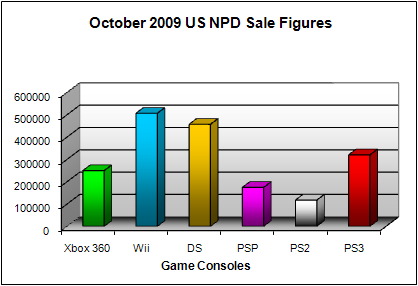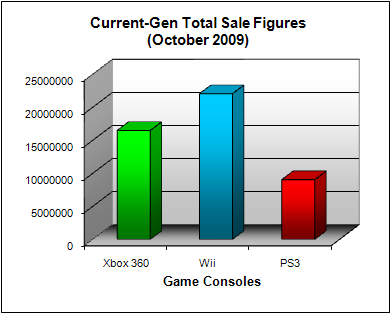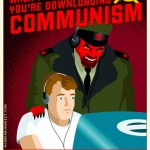A very short WNR this week mainly thanks to what Americans call Thanksgiving. No idea what it means here in Australia, but apparently it’s something to do with pilgrims, turkey eating and insane shoppers going crazy on “Black Friday”. The other reason for the short blog is that I’m down with the cold or flu or whatever is it that is making me feel like crap and sneezing and coughing like a bastard.

There’s basically only copyright news that I managed to find this week. Fox Studios loves the French style three-strikes system. They are lobbying the US government hard in order to get a similar system for the US. When Fox agrees with something the French did, you know you’re in a world of trouble.
Reading the pleas of Fox Studios, it reminded me of something I had read earlier in the week in a news article about free music, and whether it was the better way to fight piracy than legal action. The article raises some interesting points, about whether lost profits are really lost profits if the people downloading illegal music have never and will never buy music, even if piracy has been wiped out. It also argues that perhaps the biggest downloaders of illegal music, the music lovers, are also buyers of music. I think I posted something here recently about a study or survey that showed exactly this, that people who download music illegally actually buy more music than people who have never downloaded illegal music. So instead of trying to stop piracy, which personally I believe is impossible, content owners like Fox Studios should be trying to work with the situation and find way to convert illegal downloads into legal downloads. Convert, not coerce. The studios tend to think that people are downloading illegally because it’s available, whereas in many situations, people are downloading illegally because they can’t afford to do so legally (the old “it would take $30,000 to fill an iPod” stat) or they can’t do so easily. And it’s not like the studios were that enthusiastic about the whole online music thing, other than their excitement over the DRM being used. The fact that the company that owns the world’s largest online music store is a computer company and not a studio, shows what a missed opportunity it was for the music industry, while they were fretting over frivolous matters such as DRM. And thanks to the now DRM-free iTunes and other services, legal downloads are becoming easier to find and easier to pay for. But even with these improvements, the question of affordability hasn’t really been addressed.
The latest services, like Spotify, offer free music in exchange for ads. Pretty much how radio stations work. Spotify also offers an ad-free subscription model, and other companies (again, none backed by studios) have gotten in on the act. Greed will ensure a battle between Spotify and studios over licensing fees at some stage, which could make the free model unworkable. But all Spotify does is try to bring music to more people, by making the price reasonable, and doing so using digital technology which has minimal costs and overheads and zero duplication costs, unlike a physical thing like a CD. If the studios are to be believed, then only 1 out of 10 people may be downloading music legally. Their plan is to wipe out illegal music, but without price reductions and other incentives, do they really think the 9 people will automatically switch to legal purchases even though they probably can’t afford it. Or will it simply drive people away from music, the same people who now have a wide variety of digital entertainment to choose from. It is true that you will never get 10 out of 10 people to buy music, no matter how cheap it is (if they can’t afford it, they can’t afford it), but if you can get an additional 4 people to download out of 10, making it 5 out of 10, by dropping prices to a quarter of what they are today, wouldn’t that be worth it – in this scenario, the studios are set to rake in a 25% increase in profits, and that’s assuming the lower price *won’t* make buyers buy more music, that they will simply still buy the same number of songs and albums by spending a quarter of their original amount (human psychology indicates this is highly unlikely, and what’s more likely is that as songs get cheaper, people will buy more songs and may even spend more than they did originally). Another advantage of a digital library is that there will never be a case where albums are out of print, as cost prohibitive reasons for out of print titles no longer exist when it’s simply a 100 MB file stored on a server somewhere that can be accessed if and when necessary. Just from sales of obscure albums and other out of print items, the studios are set to rake in huge amounts of money, and yet they prefer to throw away their money at politicians to get “three-strikes”.
And governments are not the only people profiting from the studios lack of vision. As reported here before, anti-piracy agencies and the law firms they employ have made a science out of extracting funds from suspected pirates, and now know exactly who to go after and how to maximize profits. One such method I mentioned recently was to accuse people of illegally downloading porn (not to be confused with the much more serious act of downloading illegal porn), an embarrassing act that, even if the downloader is unaware of the act, is too afraid of it being brought up in court and subsequently pay the “fine”, or the settlement fee. In other words, law firms are threatening to make public certain embarrassing facts, even if they may not be true, unless the individual in question pay up to make the thing go away. The most famous UK law firm to be involved in this, ACS:Law, is set to send out 15,000 of these notices soon. The fees in question are usually ten or more times more than the actual cost of the illegally downloaded content in question, and a large chunk of it does not go to the owners of the content at all. One anti-piracy agency has reportedly said that this is much more profitable than actually stopping piracy, and it’s hard to argue against the economics.
While I’ve said that stopping piracy is impossible, content owners have at least had some success against torrent sites of late. Last week, The Pirate Bay’s tracker went offline for the last time ever. This week, the entire illegal parts of Mininova was brought down, thus removing one of the best sources of illegal torrents on the Internet. But will piracy stop, or even be slowed down? I doubt it. Just like The Pirate Bay’s lack of a tracker, the most important thing torrent sites offer is the organization and categorization of potential downloads – even the torrent file themselves are not too important, since all that’s now needed is an URL to start a download (magnet links). And this respect, the closing of Mininova is a big victory for content owners. For it to be a lasting victory in the war against downloads, one has to assume that a new Mininova, itself invented to cope with the loss of Suprnova, doesn’t spring up tomorrow, hosted in a country and by people that the RIAA or MPAA will find it hard to reach. If this happens, then the huge victory might turn into a huge defeat if all it resulted in is the creation of a more resilient enemy.
The Australian AFACT vs ISP iiNet court case concluded last week, after closing statements by iiNet. A summary of what went on can be found here. The judge is not expected to hand down a decision until next year though, so we won’t know whether the AFACT’s arguments that ISPs be held responsible for combating piracy will hold up against iiNet’s arguments that it puts an unfair (and possibly illegal) burden on ISPs to act as copyright cops. If I had to guess a verdict, I would have to say that it will be a win for the AFACT. Too many government around the world have already made it clear that the legal and financial burden of anti-piracy lies with ISPs, and not content owners, and it will have to be a pretty brave or knowledgeable judge to not be influenced by the “money is no object” preparation of the case by the AFACT.
And as mentioned before, there’s not much in terms of HD news or gaming news, other than the fact that I picked up a few bargains in your American Black Friday Blu-ray sales, some of the bargains are still available as I type (see here for links). My impression of this year’s Black Friday sales, from Australia and looking at Amazon, is that it seemed a bit subdued. There were some good bargains, but nothing that screamed “must-have”, although the focus on Blu-ray is much more intense than it was last year. All of this should have an affect on Blu-ray sales, and I can see one of these weeks Blu-ray breaking the 20% market share barrier thanks to one of the hit releases and sales. Does this mean Blu-ray is now mainstream? It’s hard to define just what “mainstream” means, but I think Blu-ray is definitely no longer in the domain of early adopters and home theater enthusiasts, although it is still some way away from the same kind of mainstream popularity that DVDs enjoy.
See you next week.
















